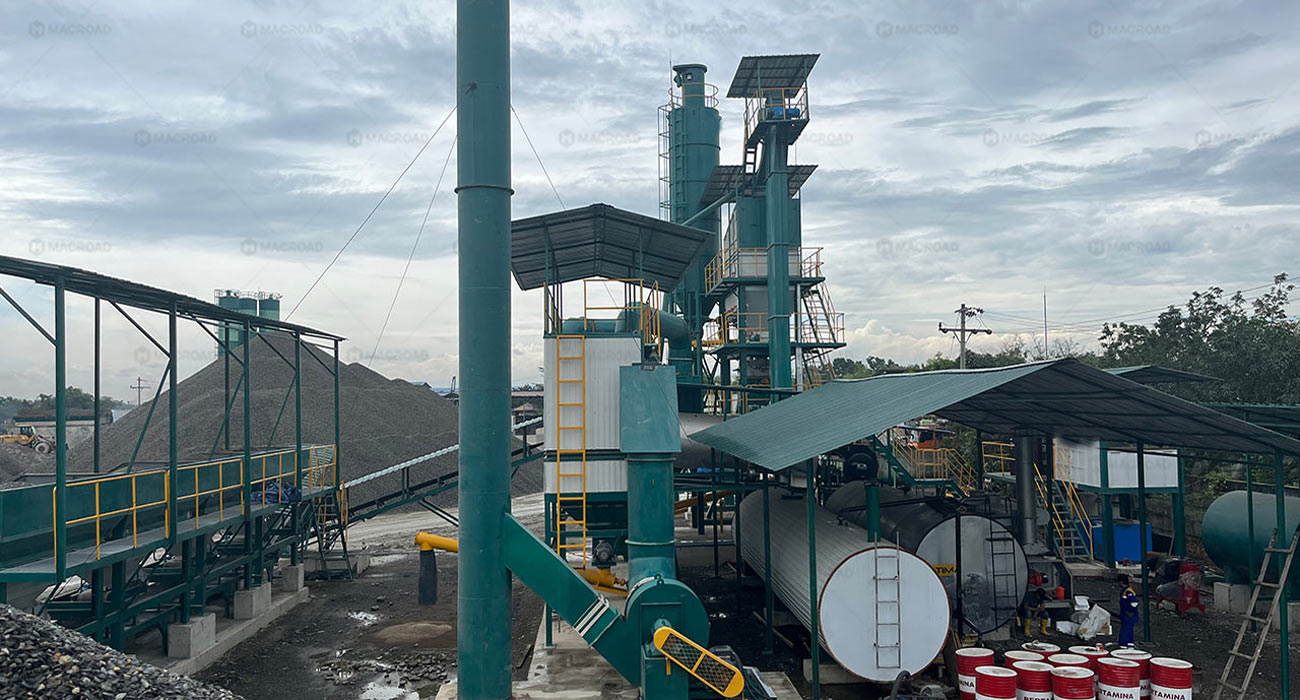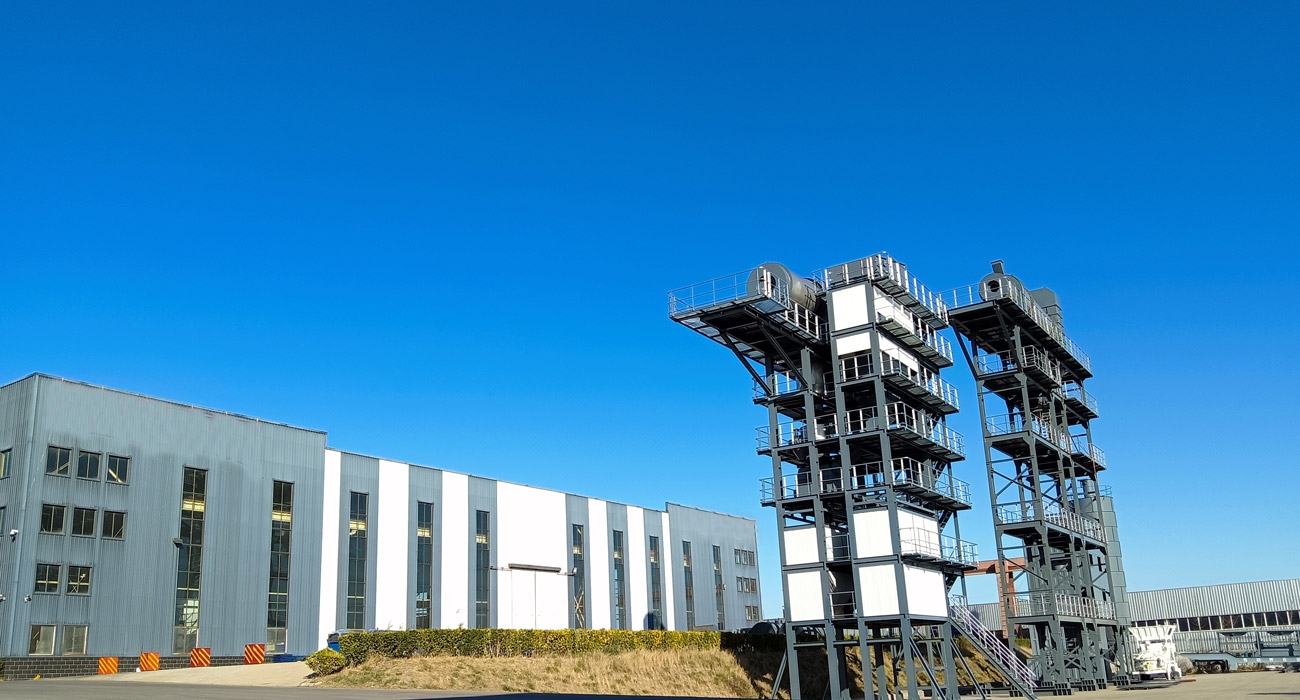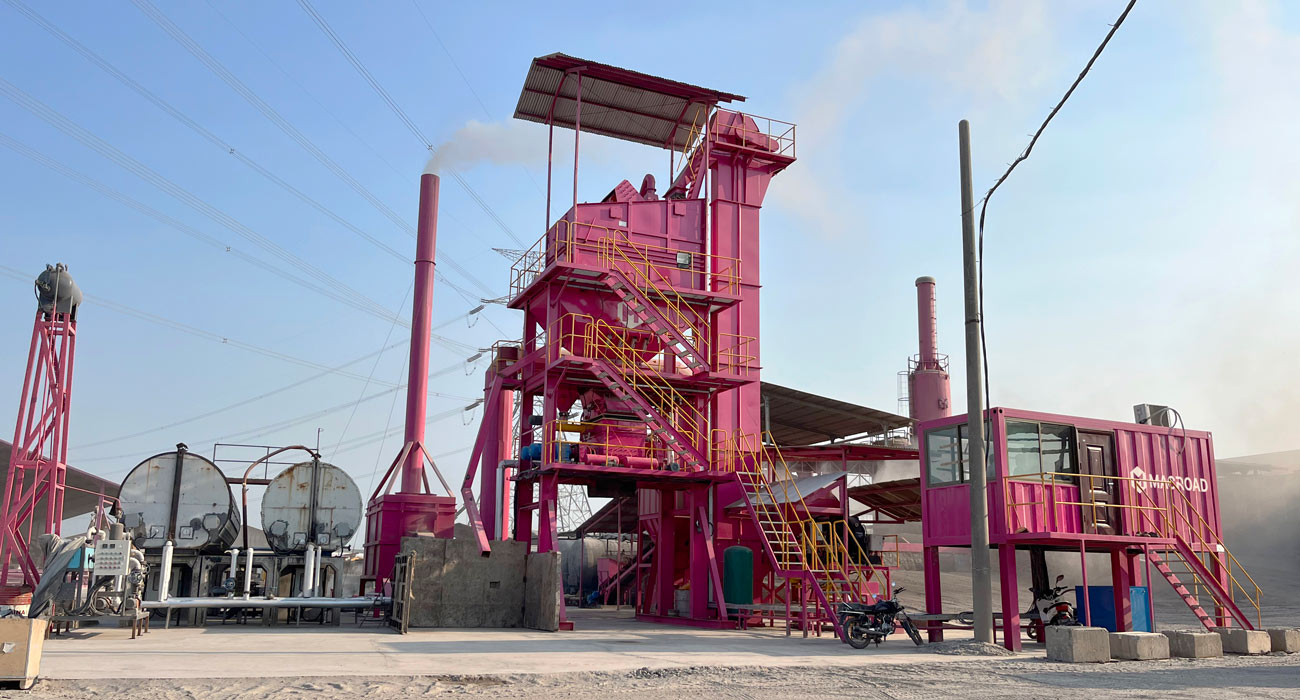35
0
0
Impact of Asphalt Mixing Plant Scale on Return on Investment
When customers choose asphalt mixing plants, the scale of the operation significantly influences their return on investment (ROI). The choice between different sizes of mixing plants—ranging from small portable units to large stationary facilities—can affect not only initial costs but also operational efficiency, production capacity, and long-term profitability. This article examines how the scale of asphalt mixing plants impacts ROI, focusing on user-centric considerations that help customers make informed decisions.

Initial Investment and Cost Considerations
One of the most immediate factors affecting ROI is the initial investment required for different scales of asphalt mixing plants. Smaller, portable plants, such as mini asphalt mixing plants, typically have lower upfront costs compared to larger stationary plants. This lower investment can be appealing for smaller contractors or those just entering the market, allowing them to start operations without significant financial risk.
However, while the initial costs are lower, smaller plants may have limitations in production capacity. For example, they might not be able to handle large-scale projects efficiently, which can lead to missed opportunities for generating revenue. On the other hand, larger fixed asphalt mixing plants, while more expensive to set up, offer greater production capabilities and efficiency. This scalability can lead to higher output and, consequently, increased revenue potential in the long run.
Additionally, the operational costs associated with different plant sizes play a crucial role in determining ROI. Larger plants often have higher maintenance and operational expenses, but they can produce asphalt more efficiently, which may offset these costs. Customers need to evaluate whether the long-term savings from efficient production will outweigh the initial investment and ongoing expenses associated with larger facilities.

Production Efficiency and Capacity
Another critical aspect of ROI is production efficiency, which is closely tied to the scale of the asphalt mixing plant. Larger plants generally have more advanced technology and automation, leading to improved operational efficiency. For instance, fixed asphalt mixing plants often incorporate sophisticated monitoring systems that optimize the mixing process and minimize waste.
In contrast, smaller plants may not have the same level of automation, potentially leading to higher material waste and lower production consistency. This inconsistency can negatively impact the quality of the asphalt produced, affecting customer satisfaction and repeat business. Additionally, larger plants can often handle diverse product offerings, including recycled asphalt, which can enhance their marketability and profitability.
When evaluating ROI, customers should consider the production capacity needed for their projects. If a contractor frequently undertakes large projects, investing in a larger plant may be more beneficial, as it can meet demand more efficiently and reduce turnaround times. This capability can significantly enhance profitability, especially in competitive markets where speed and quality are crucial.

Long-Term Profitability and Sustainability
Finally, the scale of asphalt mixing plants affects long-term profitability and sustainability. Larger plants can implement more sustainable practices, such as incorporating recycled asphalt into their mixes, which can reduce material costs and appeal to environmentally conscious clients. Using recycled materials not only lowers costs but also positions a company as a leader in sustainable construction practices, which can enhance its reputation and attract more business.
Moreover, the ability to produce larger quantities of asphalt at a lower cost per unit can improve the overall profitability of larger plants. Customers need to assess their long-term goals and market demands when deciding on the scale of their investment. A larger facility may require a higher initial investment but can offer substantial returns by capturing more market share and enhancing operational flexibility.
In summary, customers must weigh the initial investment, production efficiency, and long-term profitability when choosing between different scales of asphalt mixing plants. Understanding how each factor influences ROI will help inform their decision-making process and lead to more successful project outcomes.
Conclusion
The scale of asphalt mixing plants has a profound impact on return on investment. By considering initial costs, production efficiency, and long-term profitability, customers can make informed choices that align with their business goals. Whether opting for a small portable unit or a large stationary facility, understanding these dynamics will ensure that customers maximize their investment and achieve sustainable growth in the asphalt industry.

Initial Investment and Cost Considerations
One of the most immediate factors affecting ROI is the initial investment required for different scales of asphalt mixing plants. Smaller, portable plants, such as mini asphalt mixing plants, typically have lower upfront costs compared to larger stationary plants. This lower investment can be appealing for smaller contractors or those just entering the market, allowing them to start operations without significant financial risk.
However, while the initial costs are lower, smaller plants may have limitations in production capacity. For example, they might not be able to handle large-scale projects efficiently, which can lead to missed opportunities for generating revenue. On the other hand, larger fixed asphalt mixing plants, while more expensive to set up, offer greater production capabilities and efficiency. This scalability can lead to higher output and, consequently, increased revenue potential in the long run.
Additionally, the operational costs associated with different plant sizes play a crucial role in determining ROI. Larger plants often have higher maintenance and operational expenses, but they can produce asphalt more efficiently, which may offset these costs. Customers need to evaluate whether the long-term savings from efficient production will outweigh the initial investment and ongoing expenses associated with larger facilities.

Production Efficiency and Capacity
Another critical aspect of ROI is production efficiency, which is closely tied to the scale of the asphalt mixing plant. Larger plants generally have more advanced technology and automation, leading to improved operational efficiency. For instance, fixed asphalt mixing plants often incorporate sophisticated monitoring systems that optimize the mixing process and minimize waste.
In contrast, smaller plants may not have the same level of automation, potentially leading to higher material waste and lower production consistency. This inconsistency can negatively impact the quality of the asphalt produced, affecting customer satisfaction and repeat business. Additionally, larger plants can often handle diverse product offerings, including recycled asphalt, which can enhance their marketability and profitability.
When evaluating ROI, customers should consider the production capacity needed for their projects. If a contractor frequently undertakes large projects, investing in a larger plant may be more beneficial, as it can meet demand more efficiently and reduce turnaround times. This capability can significantly enhance profitability, especially in competitive markets where speed and quality are crucial.

Long-Term Profitability and Sustainability
Finally, the scale of asphalt mixing plants affects long-term profitability and sustainability. Larger plants can implement more sustainable practices, such as incorporating recycled asphalt into their mixes, which can reduce material costs and appeal to environmentally conscious clients. Using recycled materials not only lowers costs but also positions a company as a leader in sustainable construction practices, which can enhance its reputation and attract more business.
Moreover, the ability to produce larger quantities of asphalt at a lower cost per unit can improve the overall profitability of larger plants. Customers need to assess their long-term goals and market demands when deciding on the scale of their investment. A larger facility may require a higher initial investment but can offer substantial returns by capturing more market share and enhancing operational flexibility.
In summary, customers must weigh the initial investment, production efficiency, and long-term profitability when choosing between different scales of asphalt mixing plants. Understanding how each factor influences ROI will help inform their decision-making process and lead to more successful project outcomes.
Conclusion
The scale of asphalt mixing plants has a profound impact on return on investment. By considering initial costs, production efficiency, and long-term profitability, customers can make informed choices that align with their business goals. Whether opting for a small portable unit or a large stationary facility, understanding these dynamics will ensure that customers maximize their investment and achieve sustainable growth in the asphalt industry.
Signatur